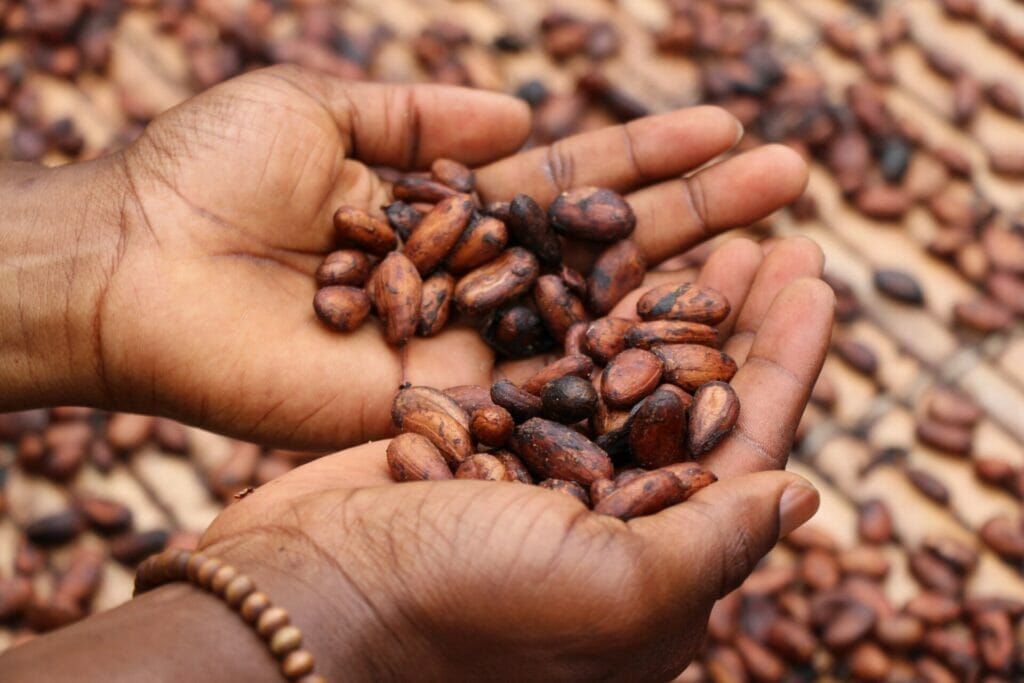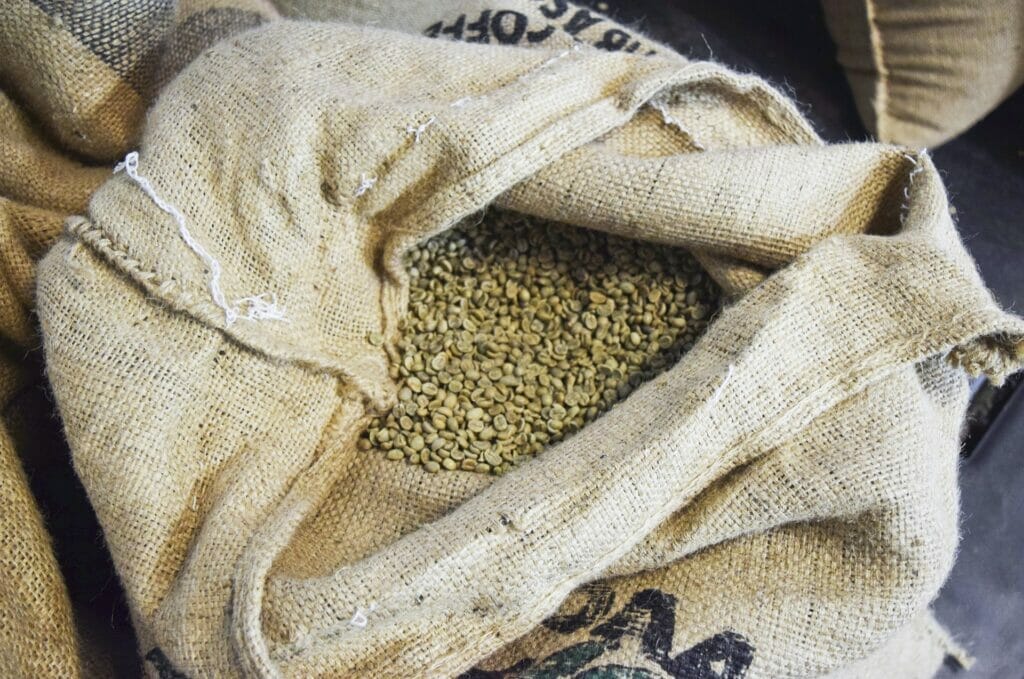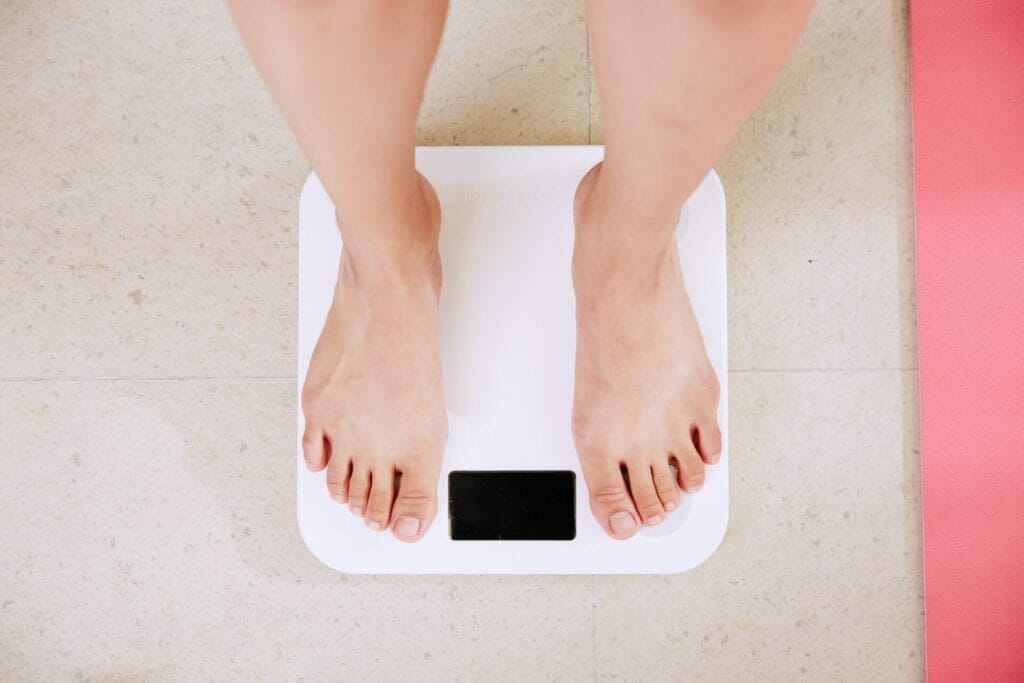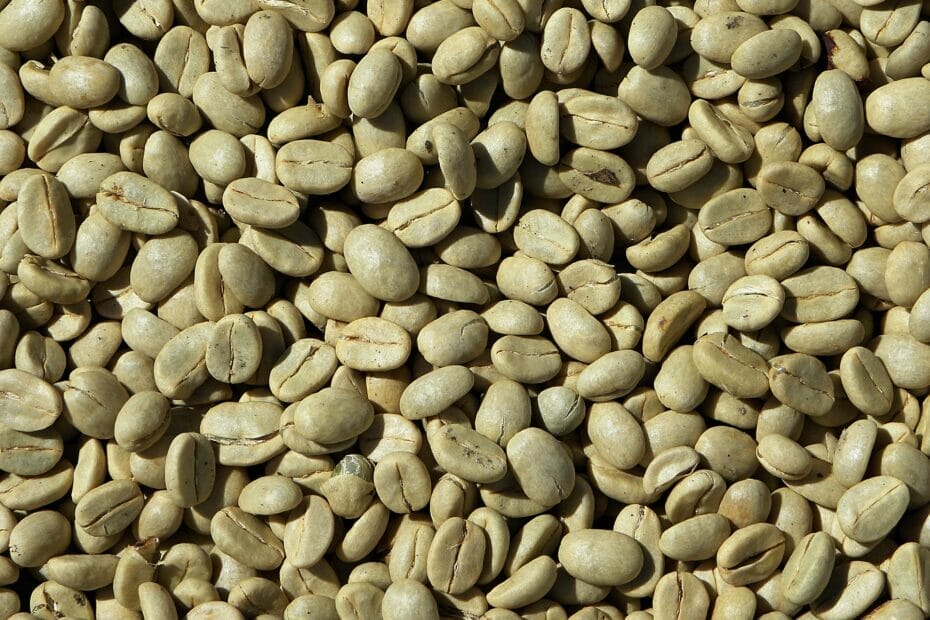Can You Eat Raw Coffee Beans?
Yes, you can eat raw, unroasted coffee beans! While the idea may seem objectionable to some, there are actually several significant health benefits associated with eating raw coffee beans. For those looking for an added boost of nutrition and an intense flavor burst, eating raw coffee beans may be the way to go.
Just bear in mind that the taste can be kind of bitter so if you’re not used to it, start out slowly with just one bean at a time. The most potential benefit is that they offer a flavor and texture that rivals that of chocolate-covered espresso beans without any additional calories or sugar to compensate.
Raw coffee beans also provide an energy boost similar to what one would get from drinking caffeine-packed beverages. Furthermore, these unroasted beans contain higher concentrations of essential vitamins and minerals like potassium and magnesium than roasted ones do.

For those looking for an added boost of nutrition and an intense flavor burst, eating raw coffee beans may be the way to go. Just bear in mind that the taste can be kind of bitter so if you’re not used to it, start out slowly with just one bean at a time.
Are Raw Coffee Beans Toxic?
The short answer is no – raw, unroasted coffee beans are not dangerous. Not in a way that eating undercooked chicken would be. While the flavor of raw espresso beans may be off-putting (sour, acidic, and woody rather than nutty) they do not contain any toxins.

That doesn’t mean you should start consuming large amounts of them immediately. You should definitely go slow if you decide to eat green coffee beans as over-caffeination can occur quickly if done in large quantities or too often.
What Are The Health Advantages Of Consuming Raw Coffee Beans?
Raw coffee beans offer numerous health advantages if consumed on a regular basis. These include:
Antioxidants
Consuming whole green coffee beans is a great way to access the plant’s antioxidants. Instant coffee is known for its antioxidant content, with chlorogenic acid being the main one. And when roasted beans are roasted, some of this crucial element is lost in the process due to exposure to heat.
Even when brewing your freshly roasted coffee beans, you won’t be able to get the most out of them. That’s why consuming raw coffee beans is a great way to ensure you’re getting the maximum antioxidant benefits from your brew!
Fiber
When it comes to fiber, raw coffee beans pack quite a punch – literally! 30 beans contain three grams of fiber – that’s 10% of your daily value and a great source of dietary fiber. So if you’re looking for an easy way to boost fiber intake, just munch on a handful of raw black coffee beans.
Not only will you be getting your daily required amount of fiber, but you’ll also get an energy kick as well as plenty of antioxidants. Raw coffee beans are the number one source of antioxidants in the Western diet so they are definitely worth having around. Just make sure not to eat too many at once – otherwise, you might find yourself buzzing all day!
Caffeine
Caffeine is best known for being a natural stimulant found in a cup of coffee, energy drinks, and tea. It’s long been thought of as something to be consumed in moderation but recent studies suggest moderate amounts of caffeine intake can actually provide a variety of health benefits.
When it comes to growth, moderate amounts of caffeine are not thought to interfere with a young person’s growth. Similarly, previous assumptions about the effects of caffeine on blood pressure have since been debunked and there’s also evidence that moderate consumption lowers the risk for hypertension.
What Are the Side Effects Of Eating Raw Coffee Beans?
Eating raw coffee beans can have a number of potential side effects for those who do not take caution when consuming them.
Taste
Many coffee lovers would agree that the taste of the liquid coffee beverage is one of the best things about it. But interestingly enough, if you eat raw coffee beans, you’re in for a very unpleasant surprise! Raw ground coffee beans have an extremely bitter and unpleasant taste which can be challenging to mask with cream and sugar, chocolate, or any other additions.
Even experienced coffee aficionados may find this flavor to be unbearable! So if you’re thinking about indulging in raw coffee beans for a pick-me-up snack, think again – its intense bitterness won’t do much for your palate.
Digestive Issues
Eating a handful of coffee beans can often cause digestive issues. Because of the high fiber and acidity content in the beans, it can lead to an upset and sensitive stomach, liver disease, and even constipation. This can be confusing because coffee is actually known as a laxative – but this doesn’t really counteract the effects of all that fiber.

To get the most out of eating raw coffee beans, it’s important to drink plenty of water so that your body is able to process the fiber. Otherwise, you may end up with more digestive issues and an uncomfortable situation.
Laxative Effect
The laxative effect of drinking cups of coffee is well-known. Studies show that even decaffeinated coffee beans increase bowel movements and low doses of caffeinated coffee can cause diarrhea in some people. This is why it’s important for those with conditions that affect their bowels, such as IBS or IBD, to consume raw coffee beans with caution.
Sleep Disturbance
Eating raw coffee beans can lead to sleep disturbances if you are sensitive to caffeine in coffee beans. Studies show that people who consume too much caffeine can have trouble both falling and staying asleep, resulting in daytime exhaustion.

Caffeine has been found to remain in the body for up to 9.5 hours after coffee bean consumption, so it’s important to watch how much caffeine you are consuming too close to bedtime.
How Many Can You Eat Without Getting Sick?
When it comes to how many decaf coffee beans you can eat without getting sick, the answer lies in finding a safe level of caffeine for your body. Generally speaking, for adults, single doses up to 200 mg and daily usage of 400 mg (roughly 4 cups of filtered coffee) are considered safe. However, there is not enough data available to confirm the same for children and teens as they may be more sensitive to its effects.
It also depends on the type of coffee bean used. For instance, Robusta coffee beans have around twice as much caffeine compared to Arabica beans. A chocolate-covered coffee bean contains an average of 12 mg of caffeine per bean with the addition of chocolate content.
That being said, adults can safely consume 33 chocolate-covered coffee beans without exceeding those limits — however it is best you don’t go past that number due to unhealthy calorie intake, added fats, and sugars.
FAQs
Is It Safe To Eat Coffee Grounds?
Absolutely! If you’re looking for an alternative to crunching whole coffee beans, then coffee grounds are a great option. The same moderation should still be taken into account, as too much caffeine can still be harmful.
Coffee grounds aren’t just safe to eat – they have many other uses outside of consumption. You can use them as a body scrub or insect repellent and even as a fertilizer for your plants.
Can I Give My Pet Coffee Beans?
When it comes to giving coffee beans to your pets, you should be very careful. Caffeine, in general, can be toxic and even potentially fatal for animals, particularly those of a smaller size. While humans may count on caffeine to get through the day, our pets don’t need it and can easily become sick from too much of the substance.
Unfortunately, there is no health benefit for pets that come from coffee beans or any other items containing caffeine. However, if your pet accidentally sniffs or licks a single coffee bean, it likely won’t cause any harm.
Does Consuming Coffee Beans Aid In Weight Loss?
Yes, consuming coffee beans can help you lose weight.

When eaten in moderation and without any added sugar or sweeteners, coffee beans provide an excellent snack option that helps you save the energy needed for your workouts. Each serving contains only 10 calories, making it a smart choice for snacks such as chocolate, chips, or popcorn.
How Much Caffeine Is There In Coffee Beans?
Coffee beans contain varying amounts of caffeine, depending on their origin. Arabica beans typically have around 6mg of caffeine per bean while Robusta beans have around 12mg. Knowing exactly how much caffeine is contained in a single bean is difficult to measure, however, some are lost in the brewing process.
To receive the same amount of caffeine through drinking coffee as opposed to simply eating the beans you will need to ingest fewer of them as brewing methods do not extract all the caffeine from the grounds.
Can Espresso Coffee Beans Be Consumed?
Yes, you can absolutely enjoy espresso coffee beans as a snack. These beans have been roasted to an espresso roast, which is a dark roast that’s usually hotter and longer. They also come in a chocolate-covered form which adds some extra deliciousness.
It’s important to remember that espresso beans don’t necessarily contain more caffeine than regular coffee beans—they might actually contain less due to the darker roast. When eating these beans as a snack, it’s best to stick to the recommended portion size for both safety and health reasons.
